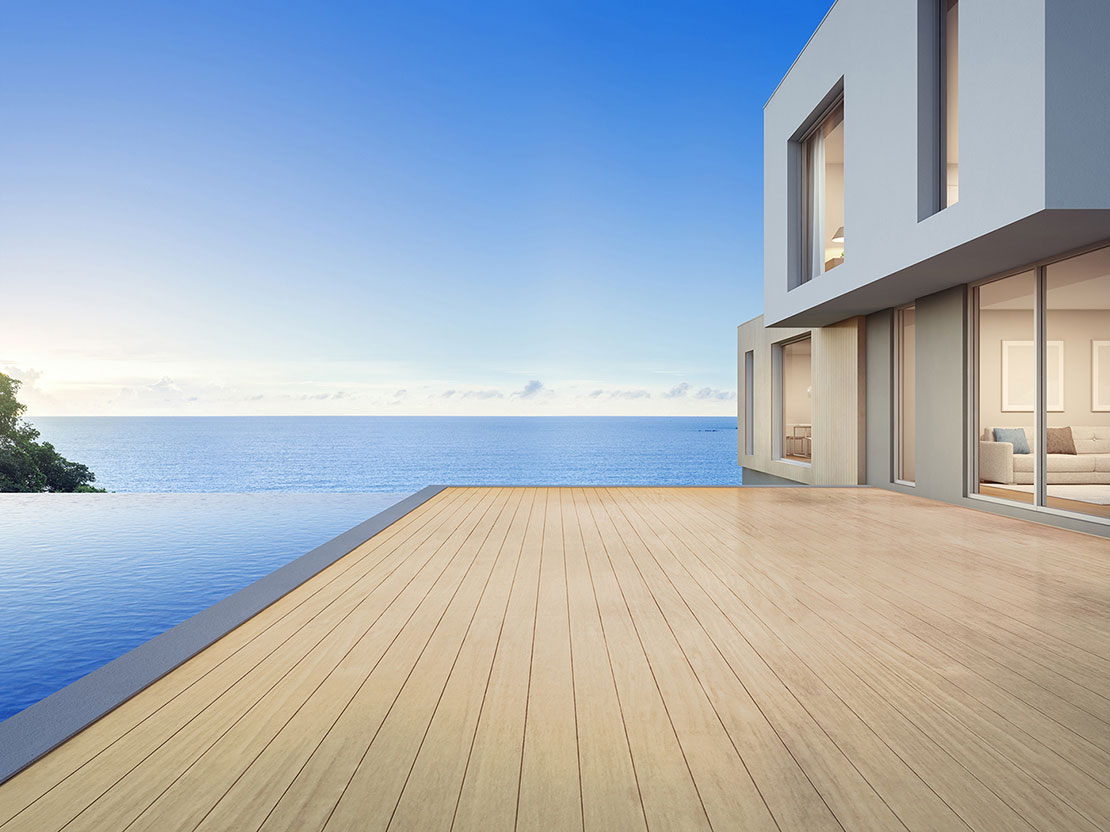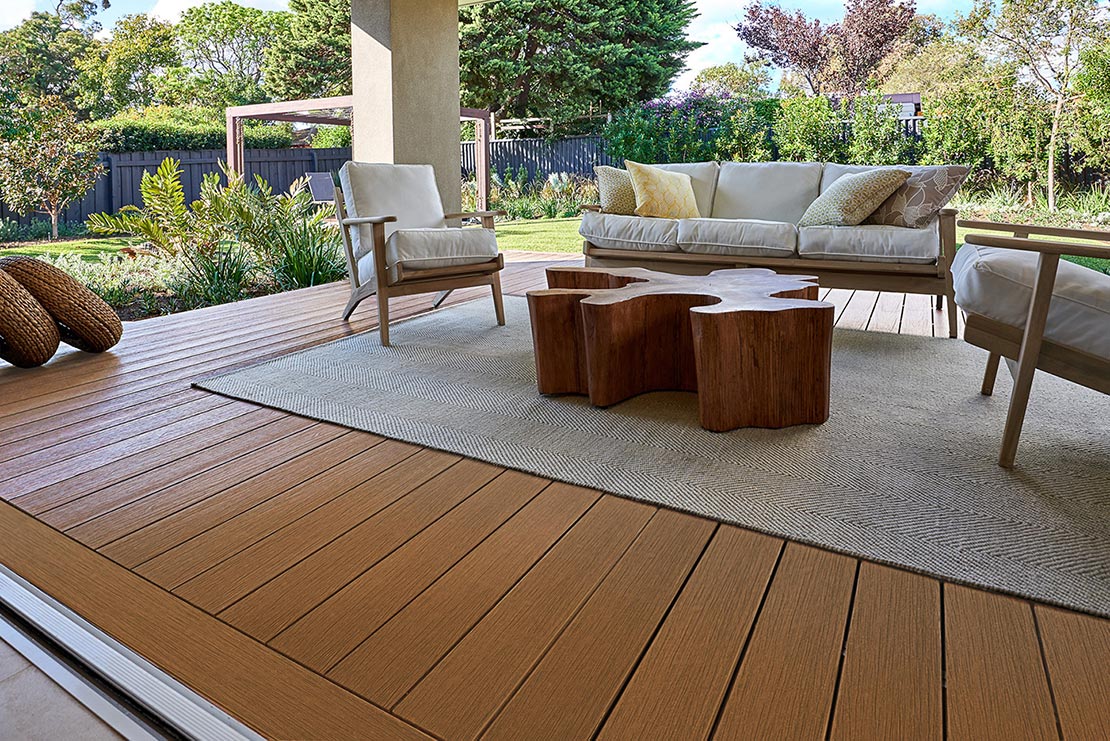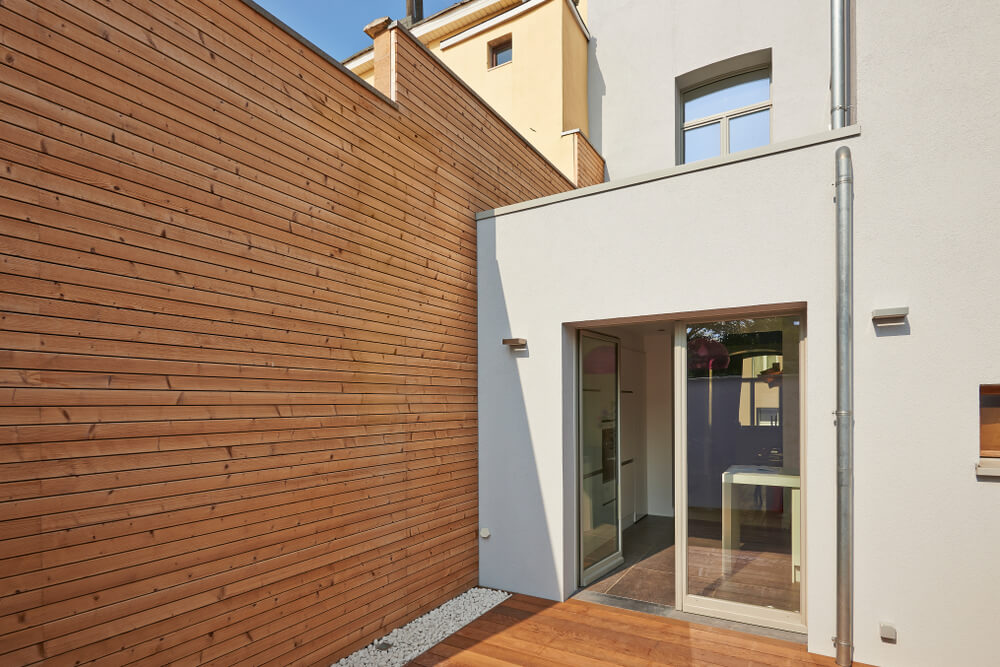The Ultimate Guide to Alternative Timber: What Should You Choose?
Building a new deck or applying cladding to the exterior of your property requires a lot of careful planning, and not least of all is deciding what’s the best material for the project. The material you choose impacts your budget, the aesthetic appeal of the final product, maintenance and upkeep costs, and things like comfort and slip resistance. People have used traditional timbers like Merbau for a long time. However, alternatives to timber have come to the fore. So what is Merbau and how does it weigh up as a material for decking and cladding? What are the alternatives to wood or timber and why consider using them? We explore these considerations in detail.
Why do people look for alternatives?
Merbau is the most common type of timber people choose for their decking and cladding projects. So what is Merbau? Why do people tend to look for and prefer alternatives to Merbau and other traditional timber solutions?
What’s Merbau?
Merbau remains a preferred option for some homeowners and builders for decking, cladding, and other outdoor projects. Merbau is also known as Vesi, Ipil, Kwila, or Pacific Kwila, and the tree is found in tropical regions such as Queensland, Fiji, the Philippines, Malaysia, Madagascar, Papua New Guinea, Solomon Islands, and Samoa.
Merbau offers deep, rich colours and intricate grain patterning. As well as its undeniable beauty, Merbau offers a degree of fire resistance and exceptional durability, and a high degree of workability. It’s also resistant to termites and weathering to a degree. Merbau’s workability means it can be used for decking, flooring, and cladding as well as furniture and musical instruments.
Disadvantages of Merbau
One of the reasons why people decide against Merbau is its tendency to leach sap and tannins. Merbau is an oily timber and so its resins can stain your shoes, any light-colour wood used around it, concrete, and tiling. This can happen until the wood dries completely, which can take months.
Maintenance and ongoing costs is another major drawback of Merbau. Along with staining and refinishing (every three to six months), homeowners will need to budget for repair work as Merbau, though durable, is not entirely resistant to cracking.
Illegal logging and sustainability are other disadvantages of choosing Merbau. Its maturity time frame is around 80 years, making prompt reforestation difficult. Merbau is challenging to harvest without impacting the surrounding habitat and so this also contributes to the deforestation of rainforests. When it comes to regulation of illegal logging, regulations currently don’t exist. Some estimates suggest Merbau could become extinct within 35 years with the pace of harvesting and illegal logging.
Finally, Merbau’s scarcity has contributed to its increasing prices, so it tends to be a costly material in terms of upfront costs as well as ongoing maintenance costs.
The different alternatives to timber
PVC, aluminium, and composite are some of the alternatives to natural timber suitable for any decking and cladding project.
PVC
As the name states, PVC decking or cladding is made from plastic, and it can be suitable for a wide range of projects. It provides strength and durability and is resistant to splitting. PVS is noise resistant and quiet upon contact with shoes and other objects. Additionally, it’s lightweight and easy to install. Other pros of PVC include:
- Resistant to the elements, termites, and rotting
- Affordability
- Can look like wood
Aluminium
Aluminium is another timber alternative. It requires minimal maintenance and upkeep and offers unrivaled durability and strength. It’s also resistant to rot, mould, termites, and rust. Other advantages include the following.
- Appealing finish
- Lightweight and easy to install
- Recyclable
Bamboo
Although commonly considered a type of wood, bamboo is actually a grass. Bamboo is versatile and used for everything from furniture and clothing to flooring, decking, and cladding. Its strength and durability, natural beauty, and lightweight quality make it an ideal material for some applications. Other advantages of bamboo include:
- Resistant to moisture to a certain degree
- Resistant to expansion and contraction
- Fast-growing and sustainable as a crop
Composite
Composite decking or cladding is typically made from recycled or new plastic and scrap and recycled wood (pulp, fibre, or sawdust). It has gained widespread popularity in recent years thanks to its strength and durability, along with its unmatched resistance to slips, rot, warping, damp, fire, UV, termites, and other pests.
Available in a wide range of colours and textures, it can be made to look as beautiful as natural wood. Composite decking and cladding require virtually no maintenance, whether restaining, resealing, sanding, or painting. Additional pros include:
- Sustainable, eco-friendly, and do not contribute to deforestation
- Easy installation with no nails or screw and so sleek appearance
- Long warranty periods of around 25 years
Polished concrete
Polished concrete is highly durable and able to endure heavy-duty pressure. As long as it’s sealed and maintained, it can be a long-lasting, cost-effective cladding or decking solution. It’s relatively resistant to marking and staining. Other pros include:
- Little maintenance
- Long-lasting
- Eco-friendly
Stone and porcelain
Stone and porcelain (made from clay) offer stunning natural beauty as cladding and decking solutions. Porcelain and some stones tend to be resistant to most liquids as well as moss, mold, and mildew. They tend to be fade-resistant and will retain their looks for a long time. Additional advantages include:
- Variety of options
- Durability
- Moisture and stain resistance
Sustainability in modern timber alternatives
Timber alternatives are also inherently environmentally friendly. This is largely because timber extraction negatively impacts the environment. With trees playing a crucial role in absorbing CO2 emissions, any removal of trees will disrupt the natural carbon cycle.
With timber alternatives, extraction processes are more sustainable as they do not revolve around essential natural infrastructure being cut down. Instead, timber alternatives rely on recycled plastics and scraps being utilised to create sustainable and efficient products.
Another important fact to highlight is timber is heavy to transport and therefore, a contributor to excessive fuel consumption and transport emissions. With traditional timber, weather such as rain will result in the timber absorbing the moisture and becoming heavier. This may result in multiple trips being made or large trucks being used to transport a load of timber to better distribute the weight.
Cost-effectiveness of alternative decking solutions
When it comes to determining the cost-effectiveness of alternative decking solutions it’s important to think in terms of the big picture. This is because, in the short term, alternative timber decking solutions will cost more than traditional timber decking.
The cost difference stems from the materials used. Eco-friendly decking materials will inherently cost more due to involved manufacturing processes and the associated expense. However, in the long term, alternative materials like PVC decking solutions will cost less than a timber installation.
This is largely due to the fact that timber deckings need to be maintained through processes like oiling or staining every year, both of which can significantly add up. On the other hand, alternative decking materials are substantially more durable and therefore require minimal maintenance.
The right alternative for you
You have a range of options when choosing decking or cladding materials for your project. Depending on your specific requirements, different alternatives might be best for you. However, all things considered, composite decking offers the best possible solution across the board, with the most compelling advantages in terms of low maintenance, durability, and long warranty, cost-effectiveness, slip resistance, and aesthetics. These advantages are even more apparent when contrasted with traditional materials like wood. Composite cladding, with its resistance to the elements, pests, warping, cracking, and rotting, coupled with its low maintenance needs could mean it gives you the best value for your time and investment.
At KEKSIA, we’re committed to sourcing unique products from forward-thinking companies that help transition the building industry to a higher standard. We’re always here and ready to help you deliver the right solution for your decking and cladding requirements. We welcome you to
contact us today with your questions about our composite cladding products or any queries you have about your plans or specifications.


